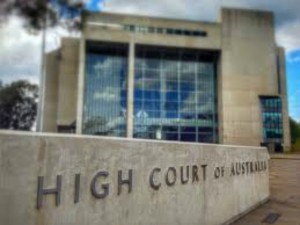High Court of Australia: Kiefel, CJ. and Bell, Gageler, Keane, Nettle, Gordon and Edelman, JJ., allowed an appeal that sought ascertainment that the appellant was to be presumed the father of his biological daughter or not. It was to be decided by exercising Section 79(1) of the Judiciary Act, 1903 (herein “the Act”) which had laws to govern State or Territory where applicable. Presumptions of parentage arising out of use of fertilization procedures under Sections 14(2) and 14(4) of the Status of Children Act, 1996 (herein “SAC”) were to be applied to applications for parenting orders made under Point VII of the Family Law Act, 1975 (herein “FLA”).
The appellant and the respondent were close friends. In 2006, the appellant provided his semen to the first respondent to artificially inseminate herself and conceive a child, which she did. Appellant’s name was entered on the child’s birth certificate as her father. The child, thereafter, lived with the respondent and her partner, the second respondent. The appellant had and continued to have an ongoing role in her financial support, health, education and general welfare. He was extremely close to the child. In 2015, the respondents decided to move to New Zealand and take the child as well. The appellant instituted proceedings in Family Court of Australia seeking restraint on the relocation of the child, claiming that he shared parental responsibility with the respondents. The Family Court ruled that the second respondent did not meet the legislative requirement to be the other intended parent taking into consideration relevant facts and contentions and the appellant was the other parent. On appeal to the Full Court of the Family Court, it was held that the appellant was not a parent of the child. Aggrieved thereby, the instant appeal was filed.
The counsel for the appellant, M P Kearney and C L Lenehan with E A Lawson and D P Hume contended that if Section 14(2) of SAC was properly conceived as a provision which regulates the exercise of State jurisdiction in matters arising under SAC, it was incapable of being picked up by Section 79(1) of the Act and applied as a law of the Commonwealth in proceedings under FLA. He further submitted that Section 79(1) of the Act anticipated State laws regulating the exercise of State jurisdiction which, if picked up and applied in federal jurisdiction, would contradict laws enacted by the Commonwealth Parliament.
The counsel for the respondents, B W Walker with M McMahon and J S Stellios submitted,that “parent” under Section 5(1) of the Child Support (Assessment) Act, 1989 (herein “CSA”) was defined, when used in relation to a child born because of the carrying out of an artificial conception procedure, as “a person who is a parent of the child under section 60 H of the Family Law Act“. Furthermore, he contended that Section 18 of SAC could be understood as creating a limited exception to the operation of the rule of law in Sections 14(2) and 14(4) of SAC. He also referred to Section 17(1) of SAC which provided for the resolution in case of conflicts between irrebuttable presumptions and opting for the presumption that appeared more or most likely to be correct. He submitted that the presumption prescribed by Sections 14(2) and 14(4) was rebuttable, and was “procedural”, therefore, capable of being picked up and applied by Section 79(1) of the Act.
The Court observed that Sections 14(2) and 14(4) of SAC operated as an irrebuttable rule of law, that in specified circumstances, the biological father of a child born as a result of a fertilization procedure was not the father of the child. Reliance was laid upon Rizeq v. Western Australia, (2017) 262 CLR 1 to observe that Section 79(1) of the Act operated only in the area of exclusive Commonwealth legislative power which comprised the regulation of the exercise of federal jurisdiction. The Court further opined that as per FLA, “parent” was an ordinary English word which was to be taken as having its ordinary, accepted English meaning. To determine whether a person was a parent of a child born of an artificial conception procedure depends on whether the person in question was a parent of the child according to the ordinary, accepted English meaning of “parent”. Consequently, it was also ruled that Sections 60G and 60H of FLA that have provisions for adoption proceedings by prescribed adopting parent for a child born as a result of artificial conception procedures, were not exhaustive of the persons who may qualify as parents of children born of artificial conception procedures.
The Court held that the ordinary, accepted English meaning of “parent” excludes a “sperm donor”. However, in the case at hand, to characterize the biological father of the child as a “sperm donor” suggested that the appellant had done no more than providing his semen to facilitate an artificial conception procedure on the basis of an express or implied understanding that he, thereafter, had nothing to do with the child born as a result of the procedure.
Further, the Court noted that the appellant provided his semen to facilitate the artificial conception of his daughter on the express or implied understanding that he would be the child’s parent. Accordingly, to characterize the appellant as a “sperm donor” was in effect to ignore the facts and circumstances which were relevant and determinative. Noting the circumstances of this case, no reason was shown to doubt the primary judge’s conclusion that the appellant was a parent of his daughter. Therefore, the appeal was allowed.[Masson v. Parsons, [2019] HCA 21, decided on 19-06-2019]

